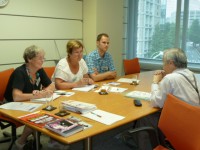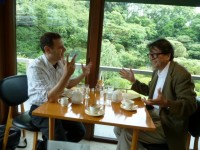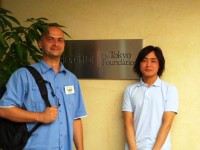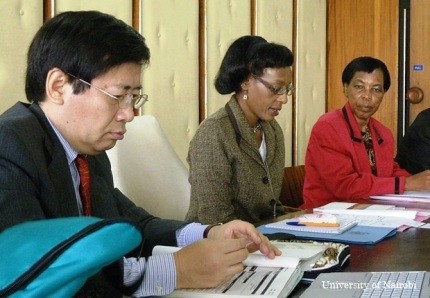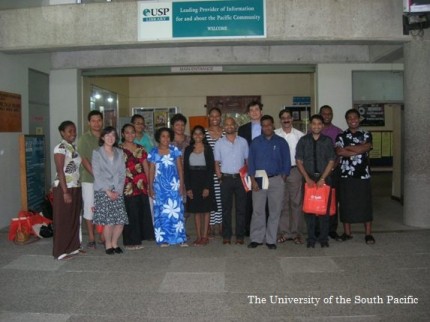On a recent visit to Japan to attend a conference in Hiroshima, I started to reflect on the tremendous changes in attitudes and energy policy that Japan has experienced in the months following the Fukushima accident, and I was impressed by the resilience of the Japanese people.
With two-thirds of all nuclear reactors being closed for routine maintenance and none reopening, Tokyo lost a fifth of its energy supply. In any other city, this would probably have led to blackouts and shortages of electricity.
Not in Japan. The government responded with an ambitious plan to save electricity, and asked private companies to cut power consumption by 15%. Nearly all companies fulfilled the target, with many of them exceeding it by saving up to 20%.
Extraordinary measures were taken, such as raising office thermostats, switching off lights, cutting down on working hours, and shifting the workweek so that employees took weekdays off and worked on weekends—when electricity demand is generally lower. I spoke to a Taiwanese-American working for a Japanese company who told me that he was forced to take three extra days off during the summer.
The power-saving campaign was also evident when I visited the Ministry of Foreign Affairs in August. A young diplomat informed me that the air conditioning had been switched off in all the rooms except for the one we were using—on an exceptionally hot day in Tokyo! Many of the corridors were left dark. It seemed that bureaucrats and high public officials were also making a sacrifice for the country.
The elevators were switched off at subway stations, and the government ran advertisements encouraging people to spend energy wisely. This campaign created new business opportunities for companies producing long-lasting light bulbs. The 7-eleven chain of convenience stores invested 10 million yen in such energy-saving measures as installing 1,000 solar panels and 5,000 LED bulbs in shops and outlets in Tokyo.
The swift response of the Japanese government came as a result of a natural disaster—the earthquake and tsunami—and a man-made one: the accident at the Fukushima Daiichi Nuclear Power Plant. It shows that with political will, resources can be mobilized during a crisis that would otherwise not be possible. However, even greater threats to humankind—global warming and climate change—have not been met with the same urgency. Why?
According to psychologists, people tend not to act on threats that seem distant and far off. Politicians tend to think only four years ahead to the next election and are unable to take tough measures to phase out fossil fuels and move toward a renewable and greener future. Only when there is a sense of crisis or emergency—the threat of war, for instance—are politicians willing to mobilize resources and take measures that were considered unthinkable or impossible just yesterday.
The nuclear disaster in Fukushima created a state of emergency in Japanese society and created an energy crisis. This mobilized the efforts of individuals, private companies, and the government to save energy for the good of the nation.
It also spurred Prime Minister Naoto Kan to state that Japan should make the transition from nuclear power to renewable energy, a remarkable statement when you consider that Japan is heavily dependent on nuclear energy. In Germany, Angela Merkel said that the government would phase out nuclear power altogether by 2020. Who would have thought this could happen before March 11, 2011?
Some say that closing down nuclear power plants would be a setback for reaching the goals to cut greenhouse gas emissions, as stated in the Kyoto Protocol. It is true that Germany and Japan for a temporary period would become more dependent on natural gas and petroleum to cover its energy needs. However, as the case of Japan has shown, there is an enormous potential to reduce energy consumption if the public and private sectors work together.
Both Japan and Germany are known for their advanced technology, innovation, and industrial capacity. A coordinated effort to cut energy consumption, combined with massive investments in renewable energy, such as solar, wind, and geothermal, would place Germany and Japan in the forefront of the development of clean energy for the world.
In fact, some would say that few other countries are more suited to make the transition to a renewable age than Japan and Germany. In this sense, a crisis can be turned into an opportunity that would benefit the private sector, the environment, and society as a whole, as energy is scarce and should be used wisely.
It is a win-win situation for everybody, and the best part is that it can be achieved without relying on the dangers of nuclear energy.
What lessons can a country like Norway draw from the experience of Japan? In contrast to Japan, Norway does not depend on nuclear power. The first—and probably the biggest—reason is the rich endowment of waterfalls, as 99% of the country’s energy needs are covered by hydropower.
But it is also due to the successful mobilization of the environmental movement in the 1970s, when the government planned to build nuclear reactors. It was at that time that Norway discovered rich reserves of oil and gas in the North Sea. This has led to a prosperous economy and revenues that have been used to finance a generous welfare state.
Most of the oil revenue has been put in a fund to prepare for the financial burden of an aging population. The endowment of natural resources means that Norway has not had to worry about a shortage of energy. The consumption of electricity per capita is one of the highest in the world; a cold, northern climate cannot explain why the consumption of an average Norwegian is higher than our neighbors in Sweden with a similar climate.
Although foreigners are shocked by the cost of living in Norway, electricity prices are relatively cheap when you take into account the high wage levels in the country. The luxury of cheap and plentiful energy has led Norwegians to be careless about their consumption. People often do not switch off lights in rooms they exit from, and it is hard to find a single household in rural Norway without a light on the outside.
While the center-left government talks about saving electricity and developing renewable energy, there does not seem to be any sense of urgency to carry out measures that would bring down energy consumption in private households, industry, and office buildings.
A government-appointed commission on climate change presented its report with more than 15 concrete recommendations five years ago, but implementation has been painfully slow. Does Norway need a Fukushima to wake up and face the realities of a world with a scarcity of energy and a growing population? That would be a horrible thought. But Norway does need to look to Germany and Japan and not lean back on its oil and gas reserves.
In the next decades, oil reserves will shrink and be increasingly more expensive to exploit. Prices will rise and businesses will start looking for other alternatives. If Norway does not jump on the train now and develop the technologies needed to shift to renewable energy sources, we might find ourselves being left behind.









